While the political dram continues in the hills, many people are disillusioned by all the ‘war’ cry from different parties and organisation. Some suggest a boycott, some want NOTA while others give you options like Bhumiputra/ Bhumiputri and what not. Here is an attempt to understand the why’s and how’s of the Voting process.
Firstly some basics about who can Vote?
You can enrol as a Voter if you:
- are an Indian citizen.
- have attained the age of 18 years on the qualifying date i.e. 1st of January of the year of revision of electoral roll.
- are ordinarily resident of the part/polling area of the constituency where you want to be enrolled.
- are not disqualified to be enrolled as an elector.
How to enrol as a Voter online (you cannot cast your vote online):
Any Indian citizen residing within the country, who has attained the age of 18 on the qualifying date (1st of January of the year of revision of electoral roll), can enrol himself/herself as General Voter and fill Form 6 online at National Voters’ Service Portal. Copies of necessary documents should also be uploaded.
APPPLY ONLINE HERE
- Form 6 [See rules 13(1) and 26]: Application for Inclusion of Name in Electoral Roll for First time Voter OR on Shifting from One Constituency to Another Constituency.
- Form 8 [See rules 13(1) and 26]: Application for correction to particulars entered in electoral roll
- Form 8A [See rules 13(4) and 26]: Application for transposition of entry in electoral roll (in case of Shifting from One Place of Residence to Another Place of Residence within Same Constituency )
You can find these forms here
Students living in hostels & mess can submit a declaration as prescribed in the ECI website and submit along with Form 6.
How to register to vote offline
You can also enrol offline. Fill Form 6 (two copies). Form 6 is also available free of cost in offices of Electoral Registration Officers / Assistant Electoral Registration Officers and Booth Level Officers.
The application accompanied by copies of the relevant documents can be filed in person before the concerned Electoral Registration Officer / Assistant Electoral Registration Officer or sent by post addressed to him or can be handed over to the Booth Level Officer of your polling area.
Call 1950 for any help or contact your Election Officer
Things to Note for a First Time Voter
- Please remember that in addition to having a Voter’s Card (ECI Card), you name must be registered in the Electoral Roll; failing which you will not be allowed to cast your vote. You can search your name in the electoral role here: https://electoralsearch.in/
- The Election Commission provides every voter a photo identification card called Electors’ Photo Identity Card (EPIC). Along with your photo and address, the EPIC contains your electoral roll number, which enables the polling official to easily identify you. However, it is not mandatory to carry your Voter ID when you cast your vote. Other valid photo identifications, such as passport, driving license, PAN etc. are adequate to exercise your franchise.
“There comes a time when one must take a position that is neither safe nor politic nor popular, but he must take it because his conscience tells him it is right.” – Martin Luther King
What Happens if you don’t case your vote
If you don’t vote, you effectively disappear from the political system. In simple words, those who vote get to decide things for everyone. That means that you are empowering the people you dislike by choosing to stay away as their opposition is decreased by one vote – yours.
E.g., let’s say that 40% stay away from elections. 60% cast their votes. Let us presume that there are two parties who get equal amount of votes. This means that 30% of the voters who voted for the winning party have a say for things that are meant for the total population.
Let’s look at the 2018 Karnataka election results. The total voter turnout was 72.13% (approx. – each news agency cites their own number). The Karnataka elections 2018 were held on May 12, 2018, in all 222 of 224 constituencies of the Karnataka Legislative Assembly
The BJP bagged 104 seats, Congress secured 78 and JD(S) secured 37 seats.
While the BJP emerged as the single largest party in the Assembly, its leader B.S. Yeddyurappa could only remain as chief minister for less than 56 hours.
The Congress, with 78 members, offered its support to the JD(S) to form the government. Both the parties safeguarded its MLAs from possible horse-trading by lodging them in hotels in neighbouring States. With Mr. Yeddyurappa realising he didn’t have the support of adequate members, and his subsequent resignation, JD(S) leader H.D. Kumaraswamy is all set to take the oath on May 23.
At 54.76%, the voter turnout in Bengaluru on Saturday shows lack of interest in elections. BJP leader from Bengaluru (Urban) had a majority of 46% vote. Many agencies blame the low turnout for the drama that allowed the party with lowest vote to elect the Chief Minster.
Hence if you don’t vote at all, you are helping to elect the politician who is least popular, which is just the opposite of what a democracy is supposed to be.
What happens in case of an election boycott by the village/ town?
A boycott does not have any role in a democracy. A democracy is about participation not about boycotting which is nothing but organised non-participation.
Lack of participation rarely nullifies election results. The incumbents would win the elections without competition. The boycotting party would be out of the Parliament and lose their access to a channel for information, to the media etc.
Why Should You Vote
- Democracy is a government by the people, of the people, and for the people. If the official is not performing their duty satisfactorily, you have the power to dismiss them.
- Every vote counts: The purpose of every government is to develop and implement various policies for the benefit of its citizens. By casting your vote, you are voting for a candidate who represents you and is aware of your needs and wants. By forfeiting your vote, you improve the chances of unsuitable candidates.
- Voting allows every citizen to be heard through your chosen candidate represents you in the government. It also enables the person with the right to question the government about issues and clarifications This is especially important for smaller communities.
- Voting is the way to express the opinion of a citizen in a democratic nation. Hence as citizens of the largest democracy in the world, voting is our responsibility. By skipping your vote, you are giving up your right altogether that may jeopardize the existence of our democratic republic.
What is NOTA
The “none of the above” (NOTA) option was made available to Indian voters in 2013. If you do not like any candidates from your constituency, but you still want to cast your Vote then you have the option to press NOTA option in the EVM.
What happens if majority of the voters choose NOTA?
The NOTA option on EVMs has no electoral value. Even if the maximum number of votes cast is for NOTA, the candidate getting the most of the remaining votes would be declared winner
Let’s presume total votes in a constituency: 100
NOTA: 60, Candidate A gets 30 and other candidates get totally 10 votes.
In this case candidate A will be announced as winner.
Some other facts about NOTA –
1. Earlier if a voter wanted to vote for NONE of the candidates then he had to sign in a register called 17 A available at polling booth. Now the EVM has an extra button with NOTA option. This helps to hide the identity of the voter.
2. Though NOTA does not affect the final result, it helps you to raise your voice against unsuitable candidates. It forces the political party to take note and present a better candidate.
3. Most importantly, it also helps to avoid False Voting. It ensures that no one else can cast a vote on your behalf nor, can there be extra votes as voting percentage cannot be moe than 100%.
Please read our special article on why we do not support NOTA in Darjeeling
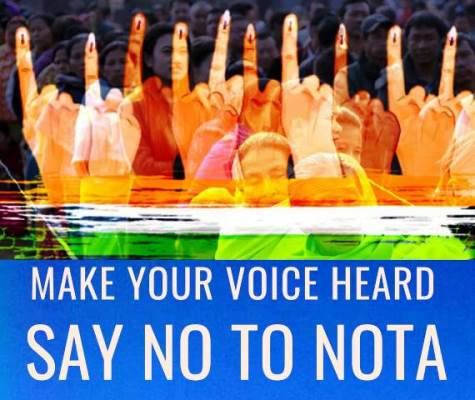
How Trustworthy are the Elections
With eight crore voters and nearly 2,000 political parties taking part, India’s elections are a staggeringly challenging exercise. And at the heart of the credibility of these complex elections is the robustness and integrity of the vote count.
Five years ago, the Supreme Court ruled that all machines should be equipped with printers producing voter-verifiable paper audit trails (VVPAT).
What is EVM ?
The Election Commission of India (ECI) says: Electronic Voting Machine (EVM) is an electronic device for recording votes. An Electronic Voting Machine consists of two Units – a Control Unit and a Balloting Unit – joined by a five-meter cable. The Control Unit is placed with the Presiding Officer or a Polling Officer and the Balloting Unit is placed inside the voting compartment. Instead of issuing a ballot paper, the Polling Officer in-charge of the Control Unit will release a ballot by pressing the Ballot Button on the Control Unit. This will enable the voter to cast his vote by pressing the blue button on the Balloting Unit against the candidate and symbol of his choice.
Voter Verifiable Paper Audit Trail (VVPAT) is an independent system attached with the Electronic Voting Machines that allows the voters to verify that their votes are cast as intended. When a vote is cast, a slip is printed containing the serial number, name and symbol of the candidate and remains exposed through a transparent window for 7 seconds. Thereafter, this printed slip automatically gets cut and falls in the sealed drop box of the VVPAT.
Since 2015, all state polls have been held using paper trails. In these elections paper slips generated by some 1,500 machines were counted and tallied with the votes in the voting machines. “There was not one mismatch,” he said. , former election chief SY Quraishi
More information can be found here:
WEST BENGAL HELPLINE call us – 1950 Email: ceo-election-wb@nic.in
Some Fact
On 01st Jan 2014, Darjeeling had the highest gender ratio of 960 female per 1000 male. Number of teenagers who would be eligible to Vote in 2014 was 8,410.
Voter Awareness and Campaigns
Systematic Voters’ Education and Electoral Participation program, better known as SVEEP, is the flagship program of the Election Commission of India for voter education, spreading voter awareness and promoting voter literacy in India. Since 2009, it has been working towards preparing India’s electors and equipping them with basic knowledge related to the electoral process.
Online awareness campaigns are also running. SVEEP has campaigns with HASHTAGS like #GoCall1950 #GoRegister #GoVerify #GoReport
Online giants like Google and Facebook have taken measure to stop spread of fake news and party advertisements.
Josh Talks (a media house that conducts motivational conferences) in collaboration with Facebook has been creating awareness and dialogues amongst the Youth since January 2019 covering 16 cities. Follow HASHTAG #MakeYourMark on Facebook.
Some questions were answered in this discussion
On Election day, Facebook will show details of your nearest polling booth. Afterwards, you can also showoff with an ‘I have Voted’ filter in your profile.
The silence of the good people is more dangerous than the brutality of the bad people – Martin Luther King
Writes: Roshni Pradhan

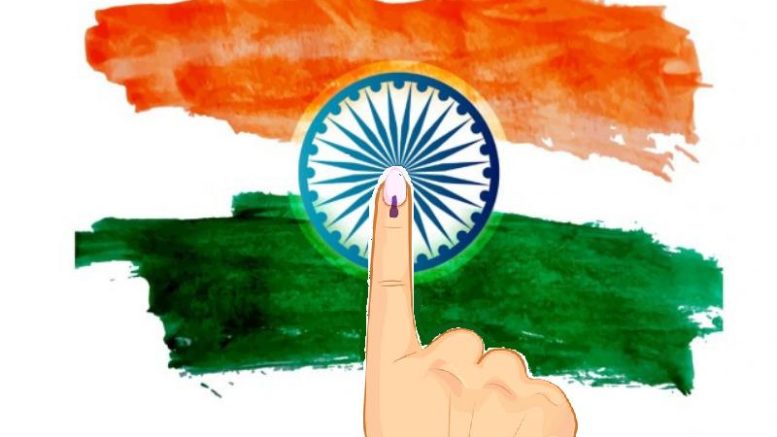

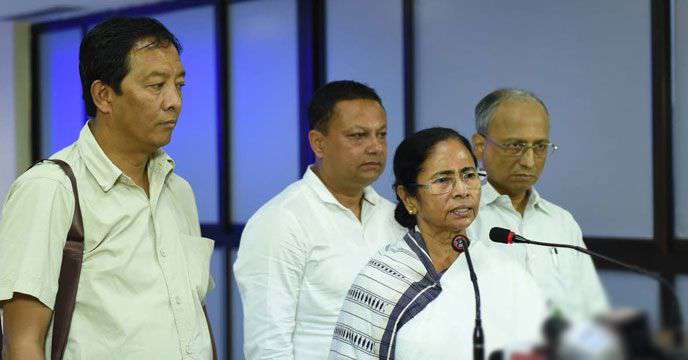
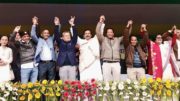
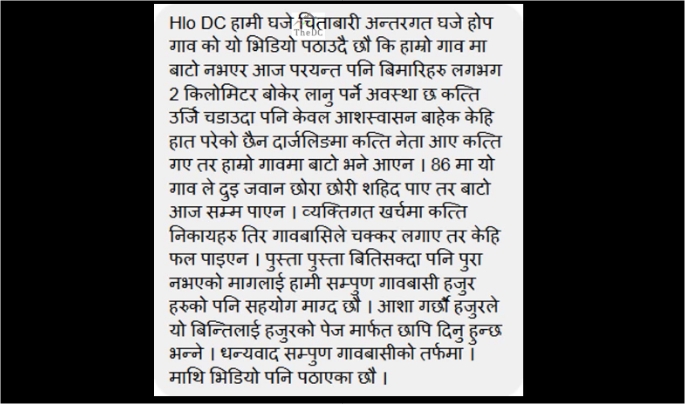
Be the first to comment on "Elections 2019: Voting Basics for All"